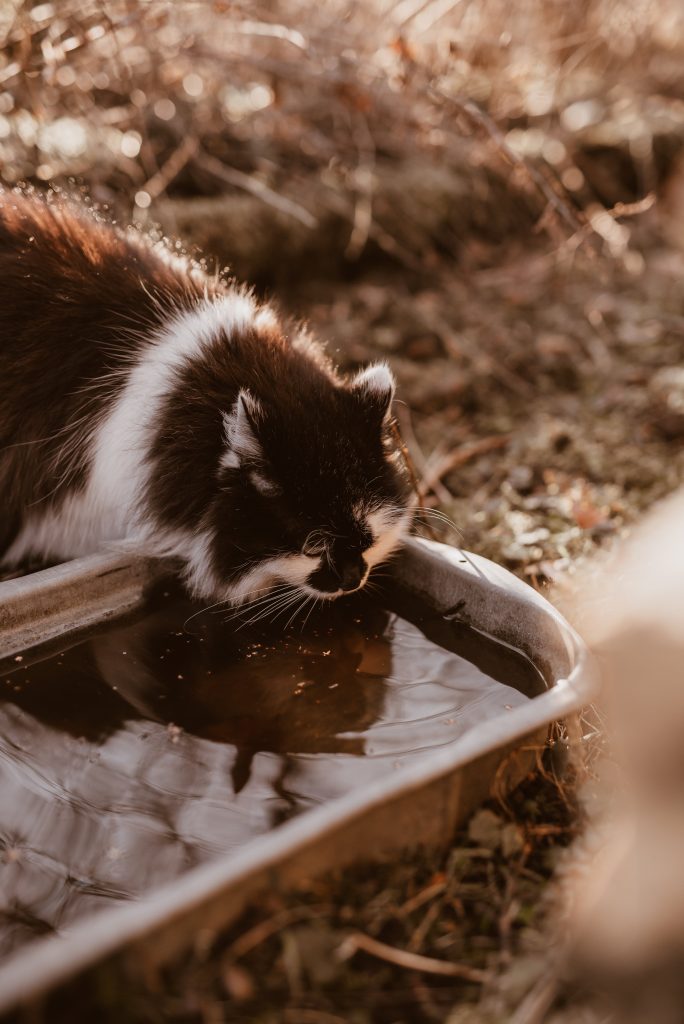As the chilly winds start to blow and frost begins to settle, you may find yourself wondering how to shield your beloved garden from the harsh winter conditions in the UK. Fear not, for there are several simple yet effective measures you can take to ensure the survival and prosperity of your plants. From providing adequate insulation to choosing cold-hardy varieties, this article will guide you through the steps necessary to protect your garden and embrace the beauty of nature, even in the coldest of seasons.
Table of Contents
ToggleChoosing Winter-Resistant Plants
When it comes to choosing plants for your garden that can withstand harsh UK winters, it’s important to do your research. Look for plants that are known to thrive in cold climates and have a high tolerance for freezing temperatures. Species like hellebores, winter heath, and snowdrops are excellent choices as they can tolerate chilly conditions and even bloom during the winter months.
Opting for evergreen varieties is another smart approach. Evergreen plants retain their foliage throughout the year, providing your garden with color and texture even when other plants have gone dormant. Conifers like spruce and pine, as well as evergreen shrubs like boxwood and holly, offer not only visual interest but also serve as windbreaks and provide privacy during the winter season.
For those with limited space or a desire for flexibility, container gardening is an excellent option. By planting your winter-resistant plants in containers, you can easily move them to more protected areas during severe weather or frosty nights. This allows you to take advantage of microclimates and ensure your plants have the best chance of survival.
Preparing the Soil
Before winter arrives, it’s important to prepare your soil to create a healthy environment for your plants. Start by clearing out debris and dead plants from your garden beds. This will help prevent the spread of diseases and pests that can harm your plants during the winter season.
Next, loosen and aerate the soil. Use a garden fork or a tiller to break up compacted soil and improve drainage. This will help prevent waterlogging and allow the roots of your plants to access oxygen more easily, promoting healthy growth.
Adding organic matter to your soil is also crucial for insulation. Incorporate well-rotted compost or aged manure into the top few inches of soil. This will not only improve soil structure but also provide a slow-release source of nutrients for your winter-resistant plants.
Mulching for Winter Protection
Mulching is an effective way to protect your plants from the harsh conditions of winter. It helps to retain moisture, regulate soil temperature, and suppress weed growth. Additionally, mulch acts as an insulating layer, shielding the roots of your plants from freezing temperatures.
When choosing mulch for winter protection, opt for organic materials such as straw, wood chips, or dried leaves. These types of mulch will break down over time, improving soil fertility as they decompose. Spread a layer of mulch around the base of your plants, making sure to leave a small gap around the stem to prevent rotting.
To maximize the benefits of mulching, apply it after the ground has frozen in late fall or early winter. This will help to lock in soil moisture and stabilize soil temperatures, protecting your plants throughout the winter season.
Protecting Plants with Covers
In addition to mulching, using covers can provide extra protection for your plants during winter. Frost cloths or blankets are effective at shielding delicate plants from freezing temperatures and harsh winds. These covers allow light and air to pass through while insulating your plants and preventing frost damage.
For taller plants or those in exposed areas, building temporary structures can provide added protection. Using hoops or supports, create a framework over your plants and drape them with a frost cloth or plastic sheeting. This will create a mini-greenhouse effect, trapping heat and protecting your plants from extreme cold.
Creating microclimates within your garden can also be beneficial. Utilize walls or fences to provide shelter for more sensitive plants. By positioning them in the lee of a structure, you can shield them from strong winds and create a warmer and more protected environment.
Watering Strategies for Winter
Proper watering is essential for the health of your plants during winter. While it may seem counterintuitive, reducing watering frequency is important as plants require less water when they are dormant. Overwatering can lead to root rot and other issues caused by waterlogging.
Before the arrival of freezing temperatures, water your plants deeply. This will help to ensure that they are well-hydrated and less susceptible to damage from cold weather. Additionally, watering deeply helps to encourage deeper root growth, making your plants more resilient.
During winter, monitor the moisture levels of your plants by checking the soil. If the soil feels dry, water your plants sparingly. Remember to water early in the day to allow time for excess moisture to evaporate, reducing the risk of freezing.
Protecting Trees and Shrubs
Trees and shrubs are often the focal points of a garden, and protecting them during winter is crucial. Wrapping the trunks of young or susceptible trees with burlap or tree wraps can provide insulation and prevent sunscald. Sunscald occurs when the winter sun heats the bark during the day, only to have it freeze rapidly at night, causing damage.
Pruning and trimming your trees and shrubs before winter can also promote stability and prevent damage from heavy snow or ice. Remove any dead or damaged branches and maintain a balanced and open canopy. This will help to reduce the risk of breakage and allow air circulation, minimizing the chance of disease.
Building windbreaks around your trees and shrubs can provide additional protection from strong winds. Use materials such as burlap or snow fencing to create a barrier on the windward side of your plants. This will help to reduce the drying effect of winter winds and prevent desiccation.
Caring for Potted Plants
If you have potted plants in your garden, they require special attention during winter. To protect them from freezing temperatures, move the pots to sheltered areas such as a garage, shed, or covered patio. This will provide them with some degree of insulation and shield them from harsh weather conditions.
Insulating pots can also help to maintain more stable soil temperatures. Wrap the pots with bubble wrap or burlap, providing an extra layer of protection against freezing. Alternatively, you can place straw or Styrofoam peanuts around the pots to create insulation.
Monitoring moisture levels is especially important for potted plants during winter. Even though they are not actively growing, they can still experience drying out from cold winds and indoor heating. Check the soil regularly and water sparingly when necessary, making sure not to overwater.
Maintenance for Garden Structures
In addition to protecting your plants, it’s essential to take care of your garden structures during winter. Covering or storing garden furniture can prevent damage from freezing temperatures, moisture, and snow. Ensure that the furniture is clean and dry before covering or storing it to prevent the growth of mold or mildew.
Inspecting and repairing fences before winter can help prevent potential damage caused by harsh weather. Reinforce loose boards, replace damaged sections, and make sure the fence is sturdy enough to withstand strong winds and heavy snowfall. Consider applying a protective coating or sealant to prolong its lifespan.
For those with greenhouses or cold frames, insulating them is crucial for maintaining the desired temperature. Install insulating materials such as bubble wrap or thermal blankets on the walls and roof. This will help to retain heat, protect your plants, and reduce heating costs.
Winter Pest Control
Although winter is generally a quieter time for pests, some can still cause damage to your garden. Common winter pests include slugs, snails, and aphids. To control these pests in an environmentally-friendly way, consider using organic methods such as handpicking, introducing beneficial insects, or applying natural pest control products.
Cleaning and sanitizing your gardening tools is important during winter to prevent the spread of diseases. Remove any soil or plant debris from your tools, and disinfect them using a solution of one part bleach to nine parts water. This will help to keep your tools in good condition and prevent the transfer of pathogens.
Winter Pruning and Trimming
Pruning and trimming your trees and shrubs during winter can promote healthy growth and improve their appearance. Dormant pruning, when plants are not actively growing, is ideal as it reduces stress and minimizes the risk of disease transmission.
Focus on removing any dead or damaged branches to maintain the overall health of your plants. Trimming back overgrown or diseased branches can also improve airflow and increase sunlight penetration, benefiting your plants in the long run.
However, it’s important to avoid heavy pruning during winter. Severe pruning can stimulate new growth, which may be susceptible to frost damage. Save major pruning tasks for the dormant period in late winter or early spring when your plants are better equipped to handle the stress.
By following these guidelines and taking the necessary steps to protect your garden, you can ensure that your plants survive and thrive through even the harshest UK winters. With proper preparation and care, you’ll be rewarded with a healthy and vibrant garden year after year.









